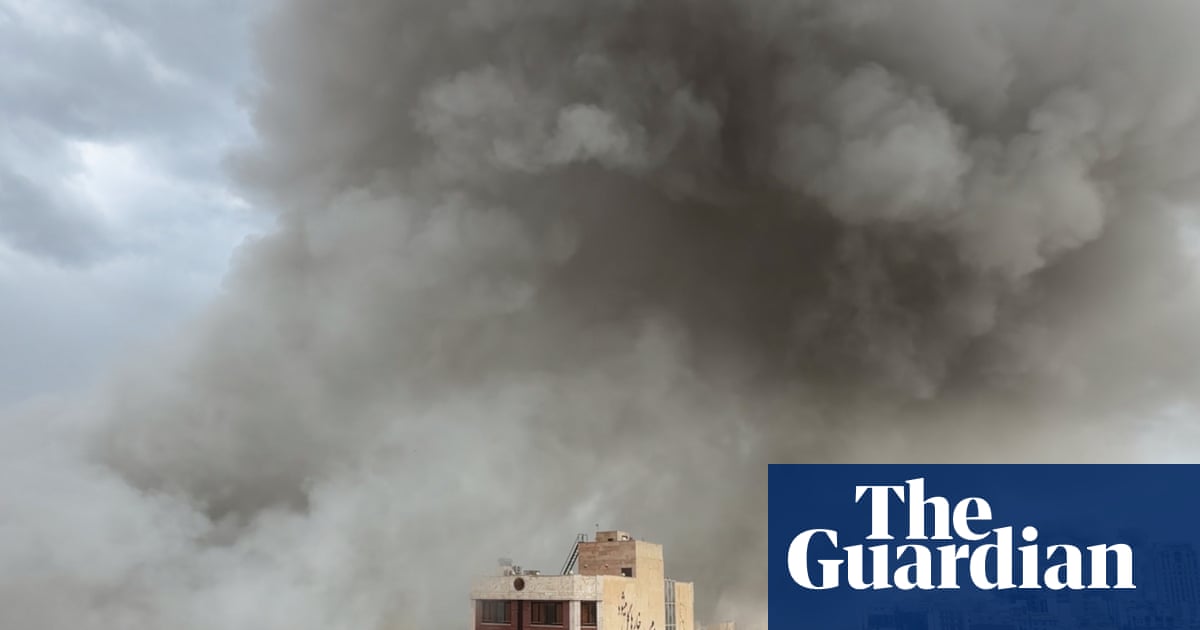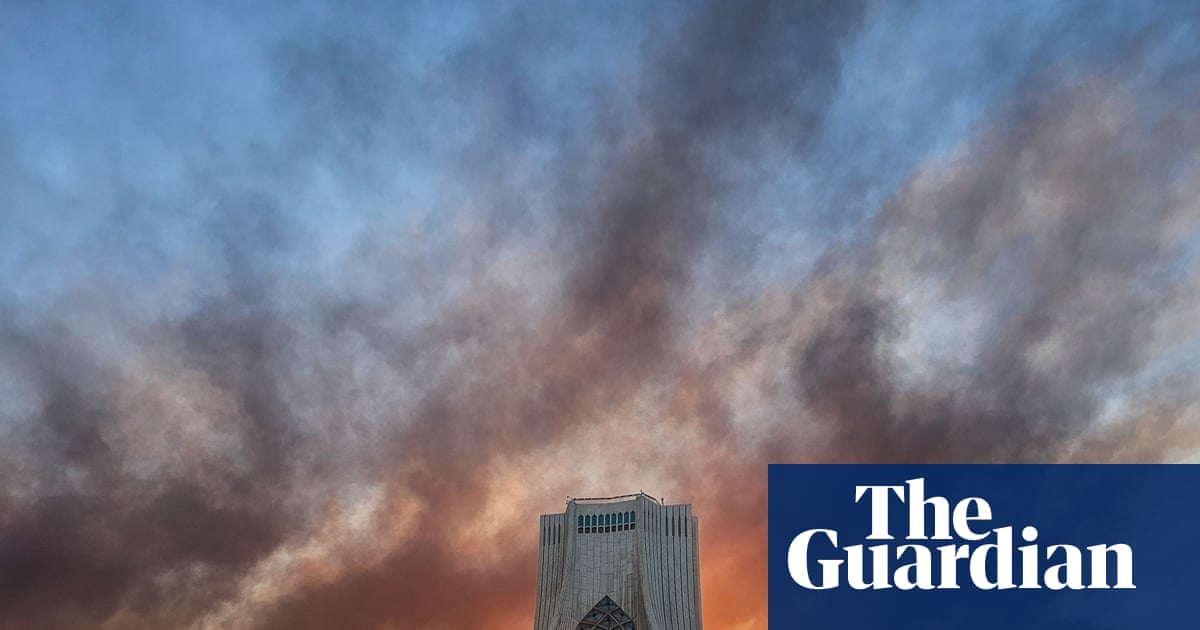US government investigations into universities over antisemitism allegations surged following the 7 October 2023 attacks and Israel’s subsequent war in Gaza, with more investigations open in the last two months of that year than in the two decades prior, according to a report published on Monday that was shared exclusively with the Guardian.
The data, compiled by the Middle East Studies Association and the American Association of University Professors and relying on publicly available records, offers a detailed account of how landmark civil rights legislation – and particularly Title VI of the 1964 Civil Rights Act – has become a primary tool to restrict speech on campus.
The provision, intended to prevent discrimination in educational institutions, was used by the Biden administration to target pro-Palestinian activism and later became the preferred weapon of the Trump administration to threaten universities with billions in funding cuts and impose its ideological priorities on issues that go well beyond antisemitism.
“In effect, the Civil Rights Act of 1964 is no longer being used to address racial discrimination in higher education,” said Aslı Bâli, president of the Middle East Studies Association. “Instead, Title VI has been repurposed as part of the administration’s broader effort to remake higher education in line with its rightwing political and cultural agenda.”
The report finds that investigations kept rising after 2023, with at least 39 new inquiries launched in 2024. They are on track to increase further this year, with at least 38 launched as of the end of September.
As the number of antisemitism investigations rose, they eclipsed other discrimination cases: in the last year of the Biden administration, officials opened nearly twice as many inquiries over antisemitism allegations than over all other types of racial discrimination. Under Trump, the latter type appear to have ended altogether.
The education department did not respond to a request for comment, citing the government shutdown. Elizabeth Huston, a spokesperson for the White House, said in a statement: “Antisemitism has absolutely no place in the United States of America, which is why President Trump has fought tirelessly to eradicate it. Under President Trump’s leadership, those who break the law and illegally discriminate against others will be held accountable.”
The report tracks 126 individual antisemitism investigations opened against 89 universities since 2004. It also analyzes 102 publicly available complaints alleging antisemitism, including 92 that led to the opening of investigations.
The complaints paint a picture of the deep rifts on US campuses over the war in Gaza, and capture the inflammatory language and accusations that have dominated university life for the past two years. They also point to a divide over the definition of antisemitism, with the number of critiques of Israel and Zionism dwarfing derogatory speech or discriminatory actions targeting Jews broadly.
In one anonymous complaint, filed days after 7 October 2023, an account was submitted through an education department online form, accusing a professor at Cornell University of spreading “hate and lies” and “pushing people towards violence”.
The complainant claimed that the professor “is supporting Hammas [sic] and their beliefs. He is literally brain washing students to hate and discriminate towards a certain religions [sic] – Jews.” The complainant requested that the professor be “fired from his current job that his teaching license is revoked and that he is black listed from ever teaching his ideology and hatred”. Despite a lack of detail or evidence in the complaint, the department’s office of civil rights wrote to Cornell’s president announcing an investigation into the university for “failing to respond to incidents of harassment”.
A spokesperson for the university declined further comment, but Cornell’s president, Michael Kotlikoff, recently confirmed to reporters that the university was negotiating with the administration after officials froze $1bn in federal funds to the school.
“Some complaints are just rants with almost no evidence or detail,” noted Darryl Li, a professor at the University of Chicago and co-author of the report. “Government civil rights enforcement is now being driven by the equivalent of a YouTube comment section.”
In another case, the parent of a student at Eastern Washington University filed a one-paragraph complaint with the department, claiming their daughter felt “unsafe” on campus because of frequent pro-Palestinian protests that the parent said were “hateful”, claiming without evidence that students chanted “Jews are committing genocide” during protests. “The Political Science Department has scheduled public talks that quickly get out of hand and are taken over by radicals who endorse Hamas and accuse Jews – not Israelis – of being baby killers and murderers,” the parent elaborated, attaching a photo of a poster for a campus event titled The Massacre in Gaza: Security or Genocide? “Please investigate the university,” the complaint concluded.
The education department did just that, opening an investigation into Eastern Washington University. The complaint is still pending, a spokesperson wrote in a statement to the Guardian.
Li said some reports include mention of a lone antisemitic episode, like a graffito scrawled on a campus wall, but do not justify government intervention.
“The legal question here is not whether someone said or did something discriminatory at some point – it’s whether discriminatory harassment is so severe or pervasive that it becomes a ‘hostile environment’ that interferes with education,” he added, citing the standard set under Title VI to warrant an investigation. “So when a complaint is overwhelmingly about protected political speech on Israel but has one or two examples of antisemitic graffiti thrown in, it is hard to see how that adds up to a hostile environment – unless you are treating the political speech as discriminatory.”
after newsletter promotion
While some groups have warned that antisemitism has surged since 2023, the picture has been complicated by a lack of agreement about when criticism of Israel veers into antisemitism.
According to the report, only one of 102 antisemitism complaints the authors reviewed raises antisemitism claims unrelated to criticism of Israel.
Title VI prohibits institutions that receive federal funding – as most universities do – from engaging in discrimination on the basis of “race, color, or national origin”. Universities are rarely accused of discriminating themselves; they are more often accused of failing to take reasonable steps in response to such discrimination.
While religion is not a protected category under the act, over the last two decades, pro-Israel advocates have lobbied for Title VI protections to be extended to Jewish students on the basis of their ethnic or ancestral background, something Trump formalized during his first term in office. At the same time, those actors pushed for officials to apply a disputed definition of antisemitism that conflates some criticism of Israel with antisemitism.
No institution lost federal funding because of a Title VI investigation until this year, when the Trump administration used alleged violations to cut or threaten to cut billions in federal funding and force a number of institutions into settlement agreements that have included significant concessions on academic freedom.
Arthur Coleman, a founding partner at EducationCounsel LLC, an education consulting firm, and a former deputy assistant secretary at the education department’s office of civil rights, said that the administration has been openly disregarding requirements that institutions be given a meaningful opportunity to address issues, and that Congress be given notice, before funds are cut. But he also stressed that any “remedies” imposed on institutions must by law be limited to the violation in question – in this case, they must address antisemitism, not extend to unrelated school governance matters as has been the case in some of the settlements sought by the administration. “You design your remedy to meet the problematic conduct,” said Coleman.
The government can only enforce Title VI against institutions – it cannot investigate individual faculty members or students. But as they have come under increasing pressure, institutions have launched dozens of Title VI investigations of their own against faculty and staff.
The surge in complaints has been in part the work of a small group of pro-Israel actors. Of the investigations analyzed in the report, at least 24% originated with groups or individuals unaffiliated with the university in question. Pro-Israel organizations were behind 78% of the complaints.
Roz Rothstein, co-founder and CEO of StandWithUs, said in a statement that six of the group’s complaints resulted in investigations. “Anti-Jewish bigotry on campuses is not a new issue; nor is it a political one,” she added. “StandWithUs works to ensure that attacks against Jewish identity, including those against the connection between Jews and their ancestral homeland of Israel, are properly understood and addressed for what they are: discrimination that has no place in our institutions of education,” she said.
Zachary Marschall, editor in chief of the rightwing Campus Reform college news site, personally filed 33 complaints, leading to 16 investigations, which he then covered as “scoops”. “I chose to speak up because higher education failed to see the humanity of students that were targeted and harassed due to their ethnicity, religion, and national origin,” Marschall said in a statement.
The administration has also established a multi-agency “taskforce” to combat antisemitism, leading to a surge in cases. They have continued even as the education department’s resources have been slashed – the staff of the department’s office of civil rights has been halved, and seven of its 12 regional offices have been shuttered.

.png) 3 months ago
91
3 months ago
91

















































